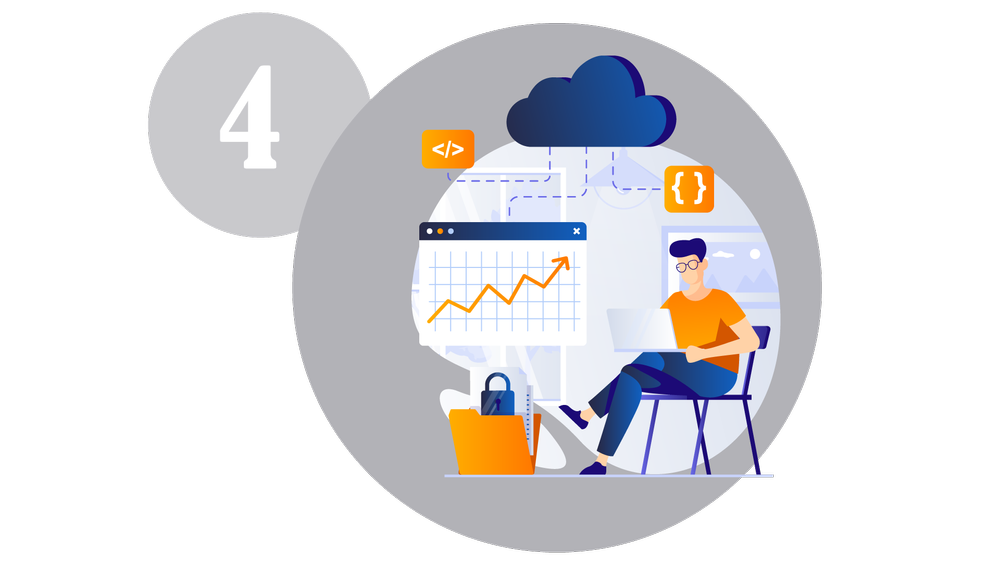The Public Cloud industry in the UK reached a total revenue of £10.2 billion in 2020.
Many companies have begun using cloud services in recent years. The technology provides various benefits and solutions that are ideal for businesses in a range of industries.
Despite this, the use of a public cloud isn’t ideal for every business, with some being better off without it. It’s important to understand what the drawbacks of Public Cloud are so that you can determine if it’s not right for your business.
For a rundown of 5 reasons why the cloud server isn’t ideal for some businesses, keep reading.
What Is Public Cloud?
The definition of Public Cloud has changed somewhat over the years. It’s currently considered to be a cluster of servers that give users access to apps and data via the internet. People can use a device such as a laptop or a tablet to access various resources from any location, as long as they have an internet connection.
Many businesses make use of public cloud to allow employees to access information and perform tasks remotely. By keeping data and apps on remote servers, you won’t need to worry about setting up and maintaining your own infrastructure. The advantages of cloud services have become a lot clearer since the Covid-19 pandemic.
The Downsides of Cloud Services
Despite the many advantages of Public Cloud, it does present some drawbacks. Depending on the nature of your business, they may be more of an issue for your company than for others. Having a good understanding of these drawbacks will let help you determine if Public Cloud is suitable for your business needs

1. Security Risks
When it comes to the web, security has long been one of the most important factors of all systems. Any time that someone is connected to the internet, they need to ensure they’re properly protected to prevent personal or business issues.
Data breaches have long been an issue for many businesses, and they can result in huge financial losses. As such, anyone using Public Cloud must take steps to keep sensitive data safe.
Company data can contain crucial details about a business, and its customers. If hackers gain access, they could use this data to steal funds from a company, commit fraud with customer information, or cause other harm. Not only will this cause losses from the data breach itself, but it can significantly reduce people’s trust in a brand.
Many companies set up their cloud systems in a way that focuses on protecting data. Hybrid cloud systems are a good example of this.
Minimising Risk
There are so many applications and services available from public cloud providers – it is important to ensure when you are leveraging multipleservices you don’t create vulnerabilities elsewhere in your business. Taking a holistic look at your environment is essential.
A hybrid cloud system makes use of on-site infrastructure, private cloud services, and public cloud services. Consolidating the foot print of these services will reduce attack vectors and make protecting your business easier.
Thinking about data and where it is stored is also essential – business critical or business sensitive data must be stored in a location that is properly protected regardless of physical location.
Something else to keep in mind is that data breaches are possible from within a company, if an employee is disgruntled for whatever reason, or if they’re careless with login credentials. As such, you should always take care to properly restrict access to data on a cloud server.
Maintaining backups is always a good idea to help in the event of an attack. Many cloud vendors offer backup and recovery services.
Koris365 can offer customised cloud services. This is an ideal solution if you want to opt for a cloud system and want to keep things as secure as possible.

2. Potential Downtime
Downtime can be a problem for any company, and various things can cause it. When using Public Cloud services, there is a risk of downtime as certain operations and tasks may be dependent on an internet connection. If the connection is lost, work could come to a halt.
If your company regularly experiences internet issues, then Public Cloud may not be a viable solution. It’s also worth bearing this in mind in terms of people working remotely. Employees will need a stable connection to access apps and data, so if they have any issues connecting to company servers, they may not be able to do their jobs.
Consider how much your business would rely on cloud services to keep functioning. If there are any issues, will you be able to continue? And if not, how much of a problem would it be?

3. Costs
For a lot of companies, moving to a Public Cloud means significant software changes. You will need new applications that are suitable for the system your business has set up. At this point, you need to look at cost considerations to see how worthwhile the change is.
Many Public Cloud applications (also known as Software as a Service, or SaaS) are relatively inexpensive. You need to bear in mind, however, that some options may not do everything that your business needs. In this case, you need to determine what additional features you’ll require, and how much they’ll cost.
If there are essential features, but you can’t source the right software, you may need it to be custom developed for your business. This can cost significantly more than it does to use software solutions that already exist. If your business already uses custom-made software, this can sometimes be moved to the cloud, but it’s not always possible.
SaaS is typically paid for as a subscription. For software that doesn’t need regular updates, desktop solutions can be ideal as you can purchase them once and then use them for years. Avoiding annual fees can save your business money in the long run.
You should also take data transfer costs into account. Inbound data transfer is free, but outbound transfers are typically charged per GB. Look at these costs and generate estimates to ensure your business won’t have huge expenses for this.

4. Inflexibility
It may not be the first thing on the list for most companies, but flexibility is always helpful. This can sometimes be a disadvantage with Public Cloud, as some apps don’t offer as much flexibility as you might need.
One of the most important things to consider here is transferring between systems. When you decide to go with a public cloud service offering, will you easily be able to change it in the future? Some apps and data formats won’t make this easy, so you could be stuck with the same provider, simply because moving would be too much of a challenge.
Some vendors do this deliberately. By making it hard to switch to another vendor, they can ensure more customers stay with them.
It’s always good to ensure your contract with your vendor gives your business full ownership of your data. Also, be sure to check that the vendor conforms to current standards so that you can switch if you need to.
Your business won’t stay the same size forever. You should also make sure you can add or remove services or data storage as and when you need to.

5. Bad Customer Support
No matter how well software performs or how many types of servers a vendor provides, bad customer support can always be a major issue. This was one of the main problems with public cloud service providers during the earlier days, and fortunately, many providers have come a long way to improve.
Cloud systems can be complicated, so there are all kinds of reasons someone might need assistance when using one. If a vendor doesn’t provide proper assistance, no business will benefit from the services they’re paying for.
One of the main purposes of customer support is to help resolve problems, and as these could sometimes interrupt business operations, a fast response is crucial. You also need to think about getting assistance with any changes you might want to make to the services you’re using.
Depending on your business needs, fast customer support may or may not be essential. Take this into account when looking at your options. Koris365 offers customer support 24/7, 365 days a year to ensure our customers always have the help they need.
Is Using a Public Cloud Right for Your Business?
Public Cloud has helped improve business operations for organisations all over the world. Despite that, there are many cases where it’s not the best solution. You need to look at your own business needs and decide whether a cloud server would be a suitable option.
At Koris365, we offer various IT solutions including public cloud, cybersecurity, virtual desktop infrastructure, and more If you have any questions about the services we offer, contact us today.


